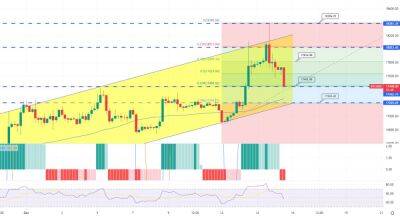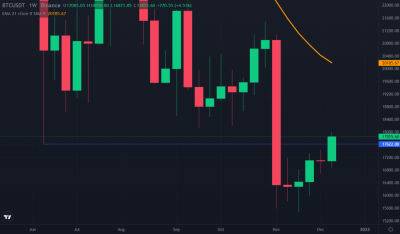Total crypto market cap falls to $840 billion, but derivatives data shows traders are neutral
The total cryptocurrency market capitalization dropped 1.5% in the past seven days to rest at $840 billion. The slightly negative movement did not break the ascending channel initiated on Nov. 12, although the overall sentiment remains bearish and year-to-date losses amount to 64%.
Bitcoin (BTC) price dropped 0.8% on the week, stabilizing near the $16,800 level at 10:00 UTC on Dec. 8 — even though it eventually broke above $17,200 later on the day. Discussions related to regulating crypto markets pressured markets and the FTX exchange collapse limited traders' appetites, causing lawmakers to turn their attention to the potential impact on financial institutions and the retail investors' lack of protection.
On Dec. 6, the Financial Crimes Enforcement Network (FinCEN) said it is "looking carefully" at decentralized finance (DeFi), while the agency's acting director, Himamauli Das, said the digital asset ecosystem and digital currencies are a "key priority area" for the agency. In particular, the regulator was concerned with DeFi's "potential to reduce or eliminate the role of financial intermediaries" that are critical to its AML and CFT efforts.
Hong Kong's legislative council approved a new licensing regime for virtual asset service providers. From June 2023, cryptocurrency exchanges will be subject to the same legislation followed by traditional financial institutions. The change will require stricter anti-money laundering and investor protection measures before being guaranteed a license of operation.
Meanwhile, Australian financial regulators are actively working on methods for incorporating payment stablecoins into the regulatory framework for the financial sector. On Dec. 8, the Reserve Bank of Australia published a
Read more on cointelegraph.com





















